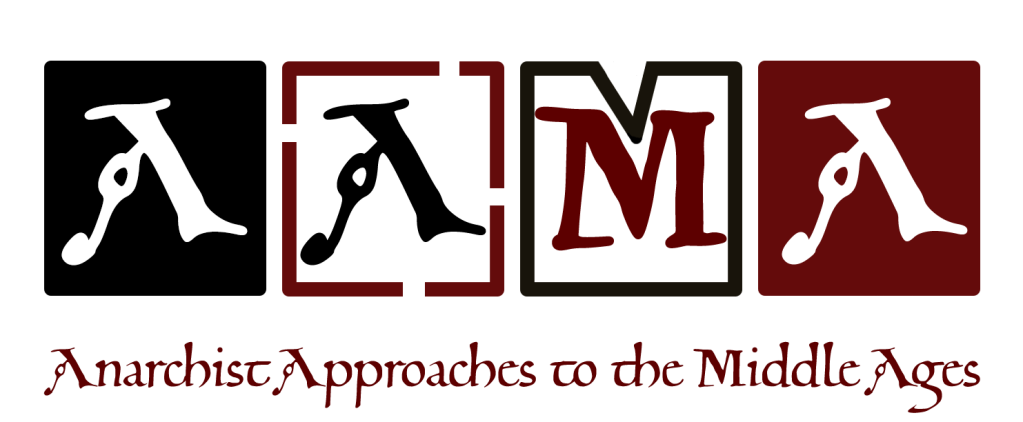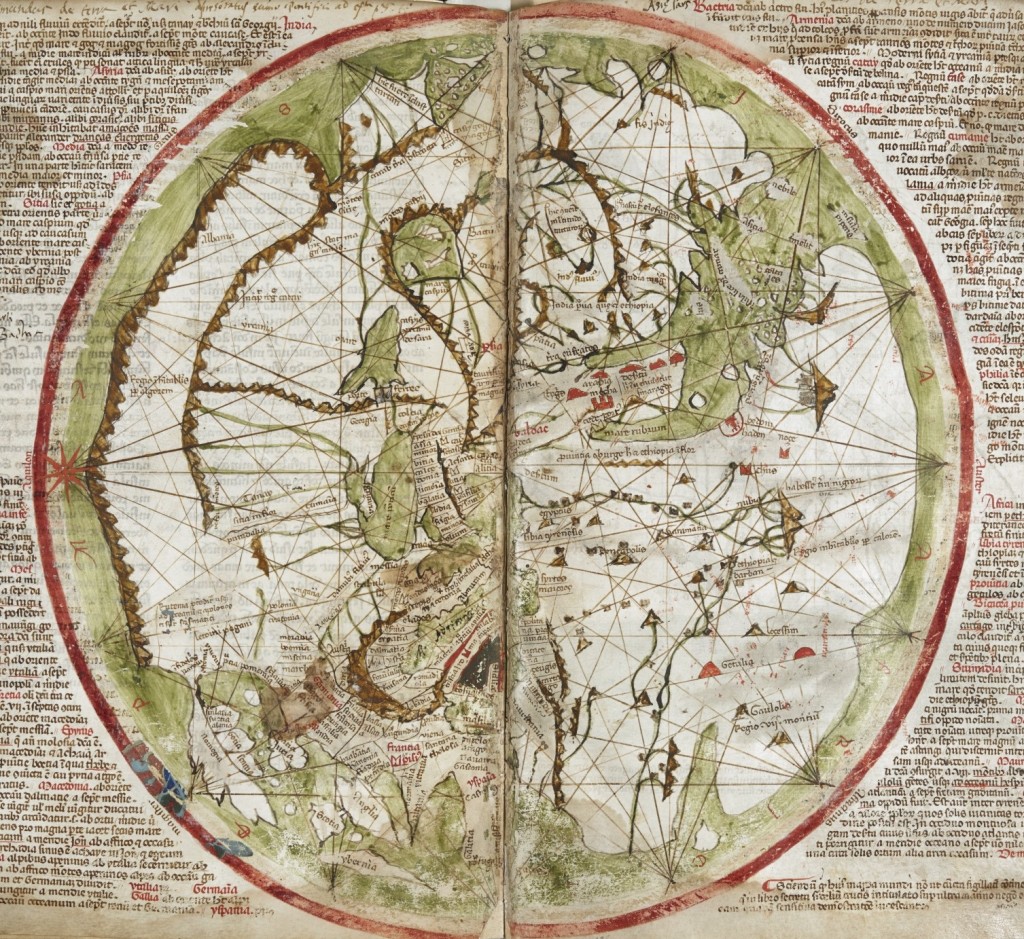

Anarchist Approaches to the Middle Ages brings together professional and non-professional medievalists interested in working on the Middle Ages using anarchist analytical tools, as well as anarchists and radicals interested in the Middle Ages.
We have a mailing list and organize panels at the International Medieval Conference (IMC) in Leeds yearly.
August 14, 2023:
The IMC 2024 theme of ‘Crisis’ speaks to AAMA interests in several ways and we hope to take it as a starting point some AAMA sessions. Crises might be religious, spiritual, social, economic, environmental, legal, gendered or political in nature (and of course most areas of human activity defy easy categorisation). Responses to crises might fall into the same sorts of (overlapping) areas. AAMA is especially interested in horizontal/non-hierarchical and non-government/authoritarian responses to such crises, and in anarchist/anti-authoritarian/non-teleological modes of defining and analysing crises (e.g., crisis for whom?). As a theme title we suggest, ‘Crisis and Possibilities of Freedom’. We hope that the sessions as a whole, as perhaps another in our series of roundtables, might also speak to modern crises, most obviously environmental, social, political, post-colonial and ‘cultural’, although not all papers need to do so. Please let us have your paper titles and a brief outline of your paper by September 8th. Please send proposals to aama@riseup.net.
Previous contributions:
- Ian Forrest, ‘Medieval History and Anarchist Studies,’ Anarchist Studies 28:1 (Spring 2021), 33-59. Available on BodoArxiv at https://osf.io/preprints/bodoarxiv/mzs9h/
- Ron Mordechai Makleff (from Leeds 2022): “Without the assent of their lords: privileging the urban charter of privileges.”
- Bee Jones (from Leeds 2021): “The saint and the barbarians: narratives of civilizational progress in twelfth-century hagiography.”
- IMC 2023 sessions #526, Finding the Middle Ages in The Dawn of Everything and Session Number: and #943, Anarchising the Middle Ages: Anarchist Approaches to the Middle Ages (AAMA) – A Round Table Discussion (see below).
Why now?
Asking anarchist questions about medieval and other pre-modern societies can help us to trace and better understand the patterns of state-building and their destructive ‘simplification’ of environments. This helps us see when, where and why unsustainable over-exploitation and destruction of the Earth’s resources accelerated, and the many points at which better choices were denied to our ancestors. The new histories that could be built out of these recognitions have the potential to alter radically our narratives of the past, our understanding of human society, and to play an important role in developing the intellectual and cultural toolkits societies need to think their way into better futures. There has probably never been a point in human history at which it mattered more to take control of our future, for ourselves and for the Earth. Anarchism suggests an entirely new path for humanity and the planet. As such, it has a great deal of contemporary resonance.
Anarchism has not become a mode of historical interpretation in a way that is true of Marxism or feminism, with ‘anarchist history’ focusing largely on the history of the modern anarchist movement. This is a missed opportunity, given the interpretive potential to be found in anarchist ideas about the operation of power and the range of human potential, among other subjects. In different, but arguably complementary, ways both anarchists and medieval historians also resist the normative and explanatory claims of modernity. At the 2023 International Medieval Congress, we put together a round table and a panel as a forum for exploring the possibilities of anarchist approaches to medieval history. This year we’ll be responding, broadly, to the provocations of David Graeber and David Wengrow’s book, The Dawn of Everything.
The session featured the following talks, thinking in particular about the work of the late David Graeber and how medievalists can respond to anarchist ideas, including ones which make little space for the Middle Ages. This session takes as its starting point David Graber and David Wengrow’s The Dawn of Everything and offers three distinct responses: Michelle Oing, ‘The Anarchic Puppet: David Graeber, Medieval Humour, and Object Performance’; Ron Makleff, ‘Anarchy and the Archive: The Medieval Deep Past’; Monika Eisenhauer, ‘The Late Medieval Agenda of Hierarchy in the Holy Roman Empire’.
The roundtable was an opportunity to continue discussion of David Graeber and David Wengrow’s The Dawn of Everything, as well as discussing other aspects of anarchist approaches to the middle ages. Scholars in any discipline with an interest in applying anarchist ideas, and the anarcho-curious, are welcome to take part in this open discussion and meet like-minded people. Participants included Bee Jones (University of Oxford), Gwendolyne Knight (Historiska institutionen, Stockholms universitet), and Claire Taylor (University of Nottingham) and Ron Makleff (Middlebury College).
Sign up for the mailing list
Anarchist Approaches to the Middle Ages sponsors panels at the International Medieval Congress in Leeds. We invite proposals through the mailing list.
To contact the group or join the mailing list, please send an email to:
aama@riseup.net
Contact
Privacy
Terms & Conditions
If you feel any of the images on this page infringe copyright, please be in touch.
See also!
- The Sportula – micro grants for Classics students from working-class and historically looted communities
- The Black Trowel Collective (manifesto) – micro grants for Archaeology students from working-class and historically looted communities
- Anarchist Archaeology Bibliography
- Anarchist Studies Network
- The Sparrows’ Nest Library and Archive
Leave a comment